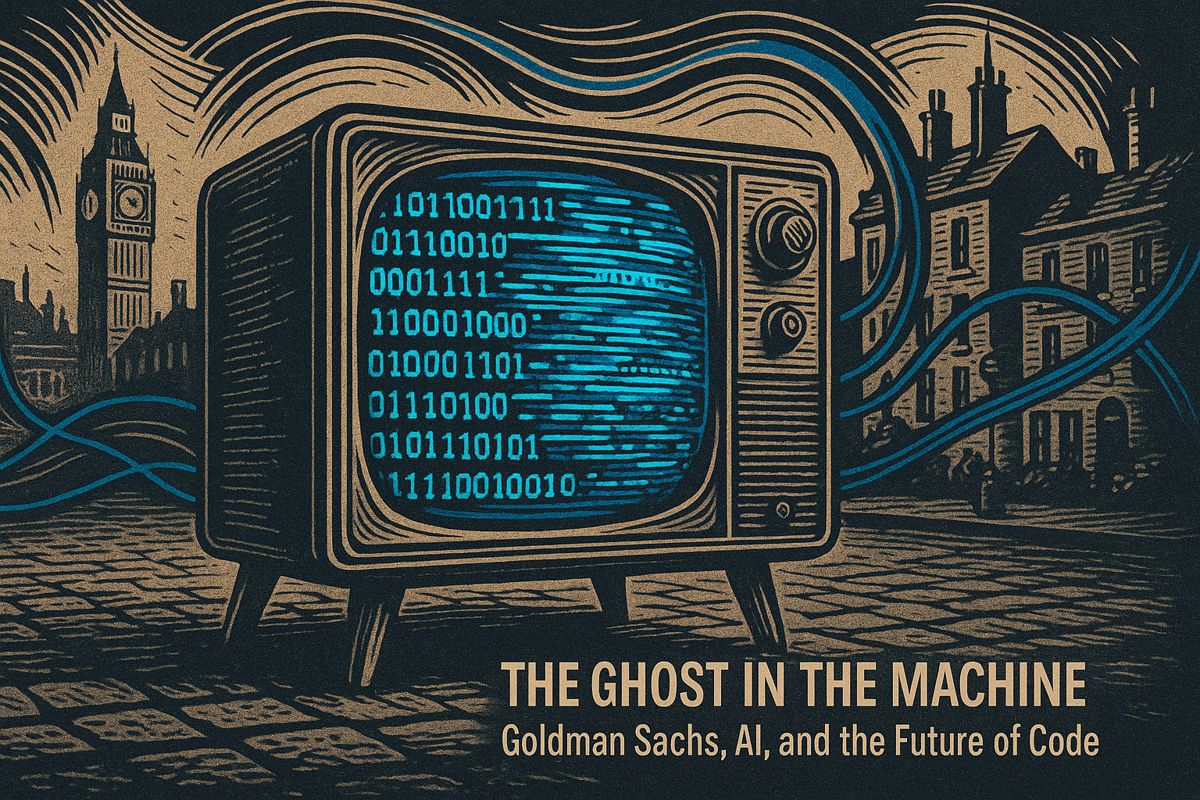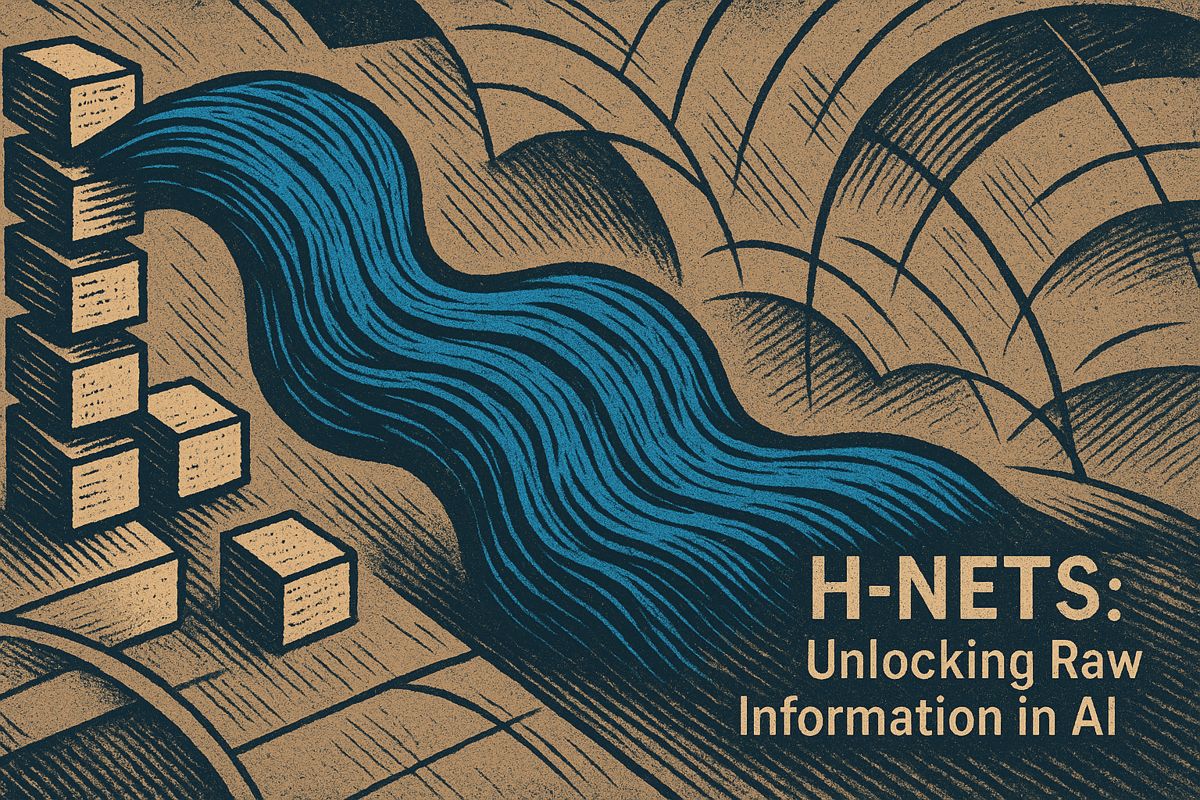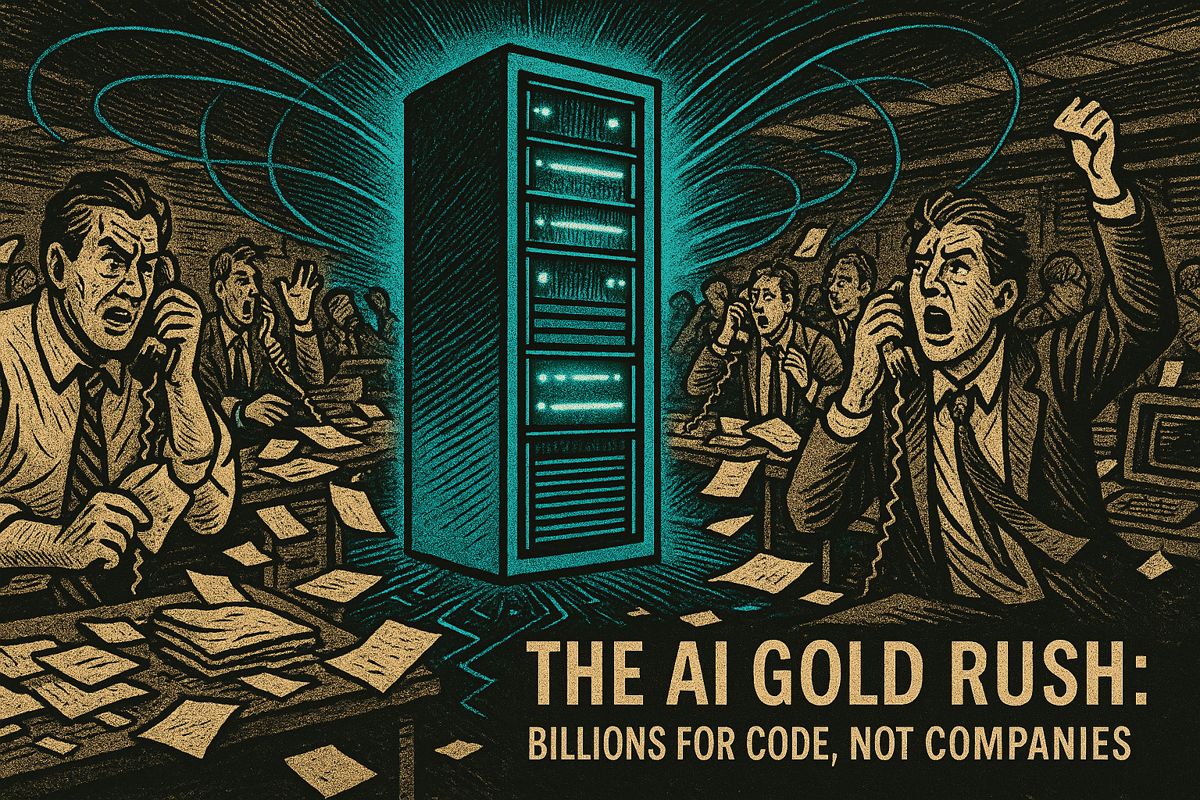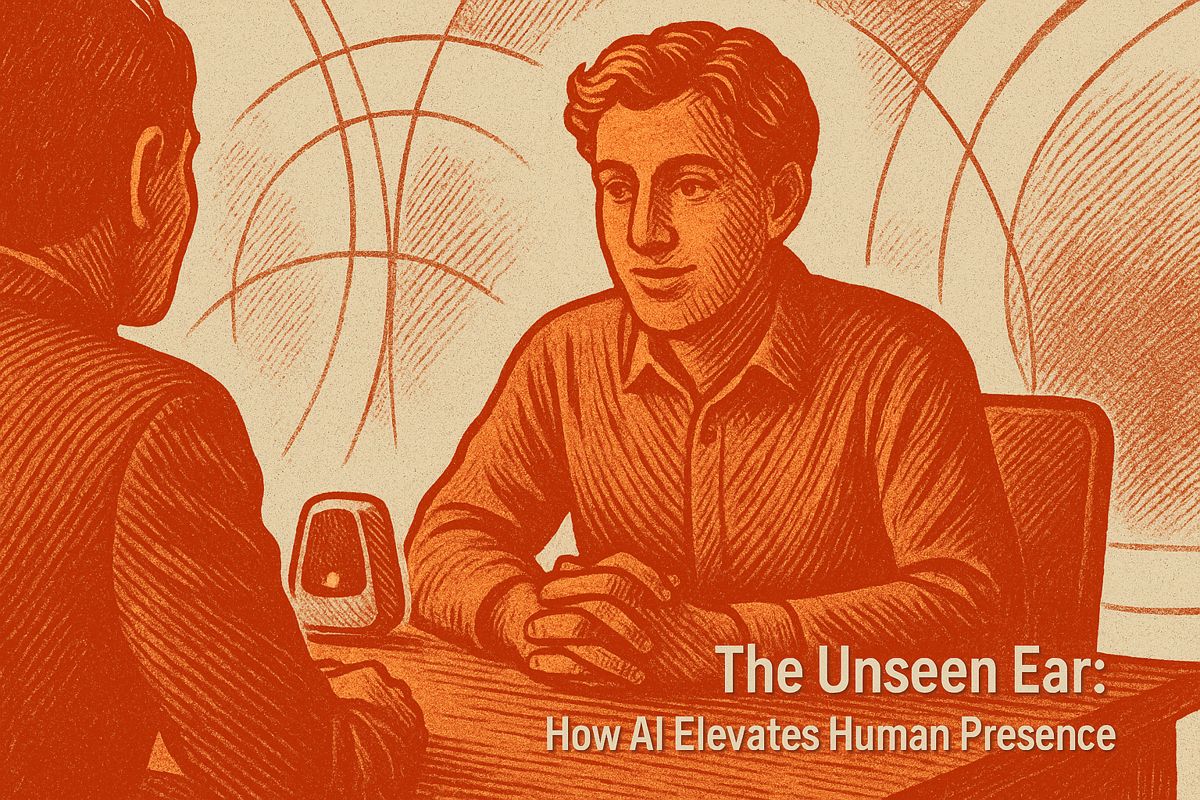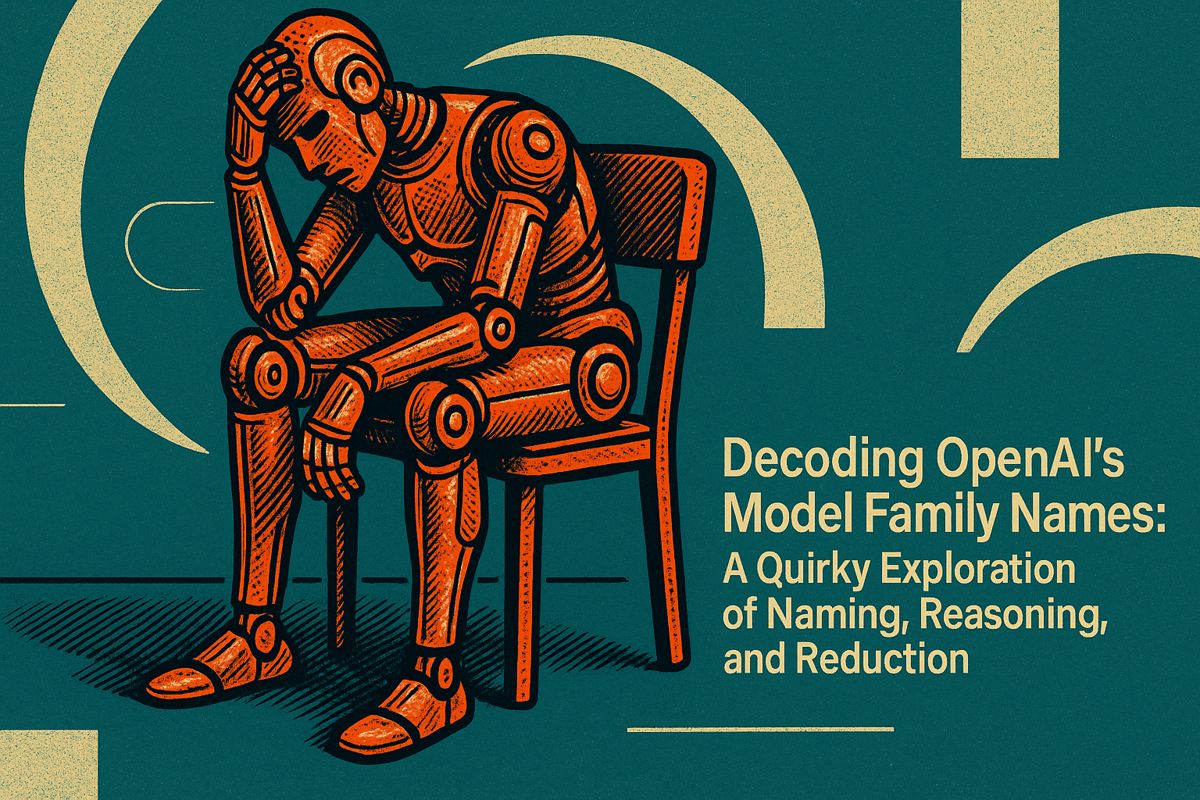Imagine powerful Wall Street giants bringing in a new kind of worker: an AI named Devin! Goldman Sachs is teaching this clever machine to be a full-fledged software engineer, planning and building computer programs all by itself. Starting in July 2025, Devin will tackle big projects, helping their human engineers, not replacing them, but making the work faster and smoother. This amazing step shows how artificial intelligence is becoming a real partner in the world of finance, changing how big companies create their tech.
What is Goldman Sachs doing with AI software engineers?
Goldman Sachs is piloting Cognition’s AI agent, Devin, as an autonomous software engineer. Starting July 2025, Devin will plan, execute, debug, and deploy software projects end-to-end. This initiative aims to augment, not replace, their 12,000+ human engineers, marking a significant step in large-scale autonomous AI deployment within financial engineering.
A Shift in the Air: AI at the Keyboard
Sometimes, scrolling through the relentless parade of tech news, a story grabs you like cold water down the back. Goldman Sachs—yes, the storied Wall Street juggernaut—is piloting Cognition’s AI agent Devin as an autonomous software engineer. I remember my first genuine coding triumph, the surge of satisfaction, the clickety-clack of keys echoing in a quiet office late at night. Now, the notion that machines might not only join us at the desk but quietly outperform us? That’s a plot twist.
Back in my fintech startup days, the sight of seasoned engineers confronting legacy bugs was almost operatic—a chorus of groans, dark humor, and the competing scents of burnt toast and old coffee. “Rewrite it all!” someone would inevitably crack. But no one actually did. I sometimes wondered: what would it be like if someone, or something, just handled all that drudgery? Well, maybe that someone is named Devin, and it doesn’t need caffeine. Or sleep.
It makes you wonder: are we watching the dawn of a new species of coworker, or just another tool we’ll learn to live with? My own skepticism crackles at the edges. I’ve doubted big tech leaps before—sometimes I got proven wrong, sometimes right. That tension is part of the thrill.
The Numbers, the Nerve, the Name-Drops
So, what’s really happening beneath the surface of the Goldman Sachs press releases? For clarity’s sake, let’s nail down the specifics. As of July 2025, Goldman Sachs has started testing Cognition’s AI coding agent, Devin, and the plan is ambitious. Devin’s remit? Function as a bona fide software developer, not just a glorified autocomplete. It’s been tasked to plan and execute software projects end-to-end, from requirement gathering to deploying robust code. Debugging, code reviews, and even test automation—Devin’s supposed to be on the hook for all of it.
The company, with its 12,000-plus human engineers, insists this isn’t about mass layoffs. Augmentation, not replacement. (At least, that’s the official line. There’s a faint chill in those words, isn’t there?) Goldman is hardly a stranger to early tech adoption, having flirted with AI copilots before most of us could even spell “transformer architecture.” But this marks one of the first large-scale autonomous AI deployments in financial engineering—a milestone observed closely by the likes of JP Morgan and even the IEEE Software journal.
Devin’s early performance? Let’s say it’s a Ferrari in a car park full of battered sedans. It excels at wrangling dense codebases, which, if you’ve ever peeked at a bank’s software stack, is a veritable jungle of tangled vines. Still, the AI stumbles on those famously wicked, ambiguous requirements—the ones humans love to argue over in meetings that smell faintly of anxiety and cheap markers.
The Meaning Beneath the Buzz: Human + AI
This isn’t just another tale of robots stealing jobs. Goldman’s leadership spins a yarn of partnership: Devin as a tireless junior dev, humans as the architects and coaches. But if you’re a would-be engineer just stepping out of MIT or scrambling through LeetCode, the prospect is a bit unnerving, no? Estimates swirl—some as high as 200,000 banking jobs on the AI chopping block in the coming decade. Exaggeration or warning? Hard to say. The anxiety smells metallic, sharp, like the tang of ozone after a summer storm.
Goldman’s move is more than a trial. It’s a signal—an electric jolt to an industry obsessed with speed and efficiency. Financial titans are racing to harness AI’s power. Those who succeed might leapfrog rivals, while others risk fading into irrelevance, much like Blockbuster in a Netflix world. I can’t help but grin at the irony: the world’s most buttoned-up banks adopting a technology that could, in theory, render their own hierarchy obsolete. Yet here we are, collaborating, competing, even bantering with our silicon counterparts. Would Shakespeare have written sonnets to his favorite compiler?
I’ll admit, when I first heard about Devin, I was skeptical—maybe even a little dismissive. Now? I’m intrigued, a tad uneasy, but also weirdly hopeful. Maybe, just maybe, this is the beginning of something genuinely symbiotic. Or, you know… just another headline. Only time (and a few million lines of code) will tell.
References:
1. https://techcrunch.com/2025/07/11/goldman-sachs-is-testing-viral-ai-agent-devin-as-a-new-employee/
2. https://timesofindia.indiatimes.com/technology/tech-news/goldman-sachs-hires-a-new-employee-that-could-be-a-nightmare-for-engineering-graduates/articleshow/122414587.cms
3. https://www.varindia.com/news/goldman-sachs-pilots-autonomous-ai-coder-devin

